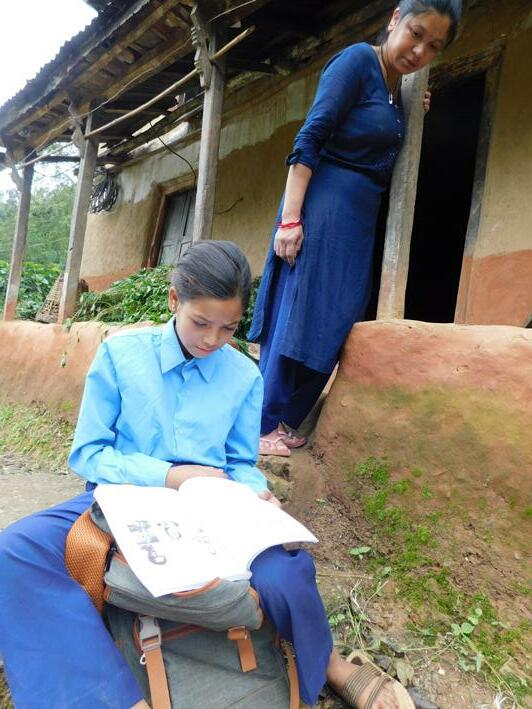
2 minute read
A ray of hope

Eleven-year-old Madhavi lives in the small village of Chandanpur, located in Nepal’s Lalitpur district. Chandanpur is extremely challenging to access as it is surrounded by hills on all sides. This makes it difficult for the villagers to access essential education, transportation and healthcare services. Consequently, most inhabitants are dependent on cattle farming or the growing of cash crops for their livelihood.
Madhavi is in class 5 at Kaleshwori Basic School and lives with her mother, Sita, and her younger brother. Her parents were married through an inter-caste marriage, meaning they belonged to different castes. Castes are hereditary social classes with hierarchical rules of caste in law, including restrictions on marriage and occupation. Intercaste marriage isn’t widely accepted in their culture and often leads to opposition and exclusion at the hands of families and communities. As they didn’t approve of her marriage, Sita’s family cut all ties with her. Then, two years ago, Madhavi’s father passed away due to excessive drinking.
After her husband’s death, Sita started working in the kitchen of a local hotel, washing dishes. The family lives in a small cottage that leaks during the rainy season and the land that they own is sloped at such an angle that it is unsuitable for farming. With no support from her maternal home, Sita struggled to make ends meet and the family often went to bed on an empty stomach.
Eventually, Madhavi had to drop out of school as her mother could not afford the school uniforms and stationery and her brother was at risk of dropping out too.



In 2019, ChildHope and Voice of Children began working in schools like Madhavi’s to tackle the issues around safe water, hygiene and sanitation. By identifying children who had dropped out of school or who were at risk of dropping out based on recommendations by the school, the team learnt of Madhavi and her brother. The project team carried out a home visit to assess Madhavi’s economic and social situation, which resulted in the siblings being identified as vulnerable children in need of immediate assistance to continue their education. Madhavi shares, The project team also engaged with their mother Sita and encouraged her to join the communitybased women’s savings and income-generating activity groups. She has started to save money as part of the group’s activities.
Madhavi is excited to be back at school and shows eagerness to attend the project’s orientation training on WASH.
“I also make my friends and community members aware of the steps for hand washing and importance of personal hygiene.”
“I was re-enrolled in the school and provided with stationery and education materials. I also received the WASH kit which contains items for personal hygiene and healthcare. My brother also received the same help.”
The school is happy with her progress and is committed to assisting her in continuing her education. Madhavi dreams of completing her education, becoming financially independent, and supporting her mother to lead a good life.











